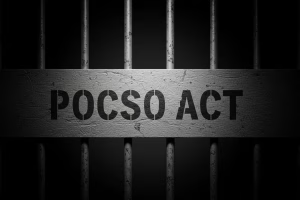GS2 – Vulnerable Sections

Context
The Supreme Court’s May 2025 judgment in Re: Right to Privacy of Adolescents has reignited debate over the rigid criminalisation of adolescent romantic relationships under the Protection of Children from Sexual Offences (POCSO) Act, 2012.
Case Background
Initial Conviction by POCSO Special Court
A 25-year-old man was sentenced to 20 years of imprisonment for a relationship with a minor, which had culminated in marriage and parenthood.
Calcutta High Court (2022)
- Adopted a humanitarian view, overturning the conviction.
- Acknowledged the realities faced by the girl—now a mother and estranged from her family.
- However, it included patriarchal remarks, urging adolescent girls to “control their urges.”
Supreme Court Intervention
- In December 2023, the Supreme Court took up the case suo motu.
- It reinstated the conviction, rejecting concepts such as “non-exploitative sexual acts with minors” and the category of “older adolescents.”
- May 2025: Invoking Article 142, the Court chose not to impose a sentence, acknowledging that jail would further traumatise the already vulnerable girl.
About the POCSO Act, 2012
- The first dedicated law to protect children from sexual offences including assault, harassment, and pornography.
- The 2019 amendment introduced stricter punishments, including the death penalty for aggravated assaults.
Issues and Concerns with POCSO
- Blanket Criminalisation: All sexual activity involving minors under 18 is criminalised, overlooking consensual adolescent relationships.
- Consent vs Exploitation: The law does not distinguish between consensual acts and exploitative abuse, especially in the 16–18 age group.
- Criminalising Developmental Behaviour: Around 25% of POCSO cases stem from consensual adolescent relationships, indicating misuse of the law.
- Disproportionate Impact on Marginalised Groups: Adolescents from poor and rural backgrounds face higher stigma, harassment, and institutionalisation.
Way Forward
- Reform the Age of Consent: Introduce differentiated treatment for consensual relationships between adolescents above 16, particularly where no coercion or power imbalance exists.
- Amend POCSO: Allow for judicial discretion and consider a “close-in-age” exemption to avoid over-criminalisation.
- Strengthen Child Protection: Ensure supportive and rehabilitative measures under the Juvenile Justice Act, 2015 are effectively implemented.
- Sensitise Stakeholders: Train judiciary, law enforcement, and media in adolescent rights and gender-sensitive approaches.




